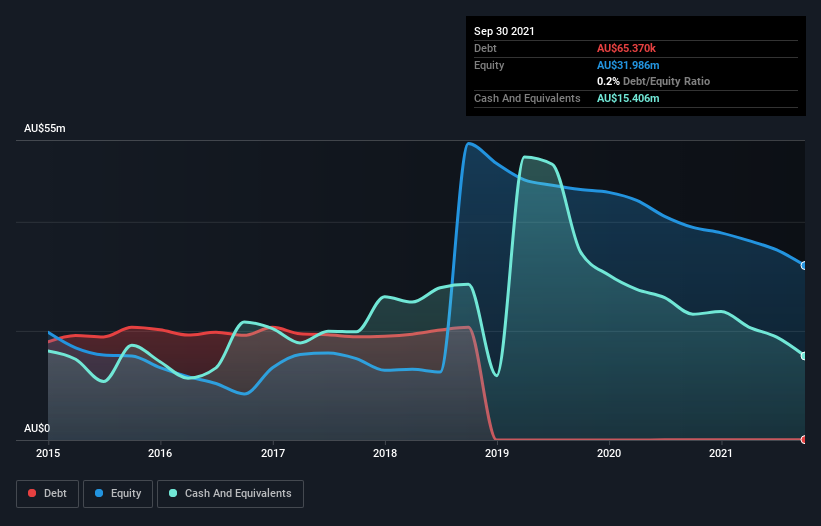We Think Universal Biosensors (ASX:UBI) Can Afford To Drive Business Growth
Even when a business is losing money, it's possible for shareholders to make money if they buy a good business at the right price. For example, although software-as-a-service business Salesforce.com lost money for years while it grew recurring revenue, if you held shares since 2005, you'd have done very well indeed. But while the successes are well known, investors should not ignore the very many unprofitable companies that simply burn through all their cash and collapse.
So, the natural question for Universal Biosensors (ASX:UBI) shareholders is whether they should be concerned by its rate of cash burn. For the purposes of this article, cash burn is the annual rate at which an unprofitable company spends cash to fund its growth; its negative free cash flow. First, we'll determine its cash runway by comparing its cash burn with its cash reserves.
View our latest analysis for Universal Biosensors
Does Universal Biosensors Have A Long Cash Runway?
A company's cash runway is the amount of time it would take to burn through its cash reserves at its current cash burn rate. As at September 2021, Universal Biosensors had cash of AU$15m and such minimal debt that we can ignore it for the purposes of this analysis. In the last year, its cash burn was AU$9.7m. So it had a cash runway of approximately 19 months from September 2021. That's not too bad, but it's fair to say the end of the cash runway is in sight, unless cash burn reduces drastically. The image below shows how its cash balance has been changing over the last few years.
How Well Is Universal Biosensors Growing?
It was fairly positive to see that Universal Biosensors reduced its cash burn by 39% during the last year. But it was the operating revenue growth of 111% that really shone. It seems to be growing nicely. Of course, we've only taken a quick look at the stock's growth metrics, here. This graph of historic revenue growth shows how Universal Biosensors is building its business over time.
How Hard Would It Be For Universal Biosensors To Raise More Cash For Growth?
There's no doubt Universal Biosensors seems to be in a fairly good position, when it comes to managing its cash burn, but even if it's only hypothetical, it's always worth asking how easily it could raise more money to fund growth. Issuing new shares, or taking on debt, are the most common ways for a listed company to raise more money for its business. Commonly, a business will sell new shares in itself to raise cash and drive growth. We can compare a company's cash burn to its market capitalisation to get a sense for how many new shares a company would have to issue to fund one year's operations.
Universal Biosensors' cash burn of AU$9.7m is about 6.2% of its AU$157m market capitalisation. That's a low proportion, so we figure the company would be able to raise more cash to fund growth, with a little dilution, or even to simply borrow some money.
So, Should We Worry About Universal Biosensors' Cash Burn?
As you can probably tell by now, we're not too worried about Universal Biosensors' cash burn. For example, we think its revenue growth suggests that the company is on a good path. Its cash runway wasn't quite as good, but was still rather encouraging! Considering all the factors discussed in this article, we're not overly concerned about the company's cash burn, although we do think shareholders should keep an eye on how it develops. Separately, we looked at different risks affecting the company and spotted 2 warning signs for Universal Biosensors (of which 1 doesn't sit too well with us!) you should know about.
Of course, you might find a fantastic investment by looking elsewhere. So take a peek at this free list of companies insiders are buying, and this list of stocks growth stocks (according to analyst forecasts)
Have feedback on this article? Concerned about the content? Get in touch with us directly. Alternatively, email editorial-team (at) simplywallst.com.
This article by Simply Wall St is general in nature. We provide commentary based on historical data and analyst forecasts only using an unbiased methodology and our articles are not intended to be financial advice. It does not constitute a recommendation to buy or sell any stock, and does not take account of your objectives, or your financial situation. We aim to bring you long-term focused analysis driven by fundamental data. Note that our analysis may not factor in the latest price-sensitive company announcements or qualitative material. Simply Wall St has no position in any stocks mentioned.

